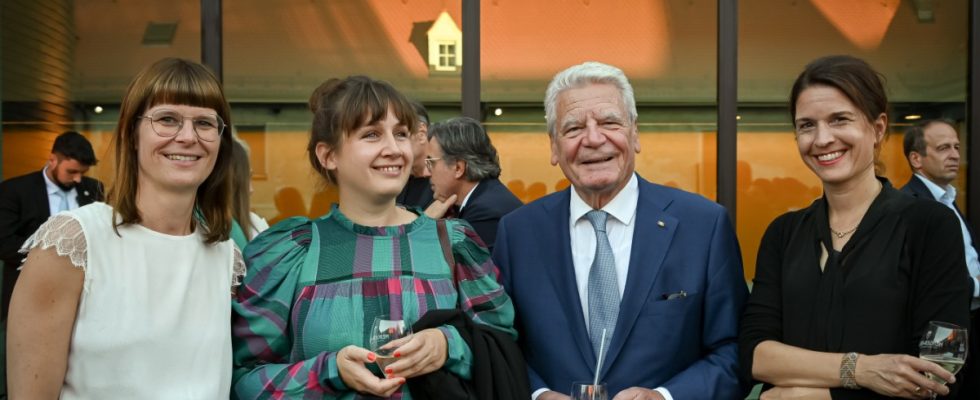Quiz question: Can you sort Odessa, Bucharest and Sofia from north to south? No? It’s very simple: the sentence already provides the solution. And at the same time it’s not as easy as that Mirror-Journalist Nadia Pantel shows in her text, which was entitled that very question and appeared in the news magazine at the end of last year. Many people in the Federal Republic probably have difficulty with the question not primarily because they lack any basic geographical orientation, but rather because the area between Berlin and Moscow remained a blank space in their consciousness for a long time. A “crumple zone,” as Pantel wrote in her text, which only really became apparent with Russia’s attack on Ukraine.
Pantel’s essay, which mixes personal experience, reflection and research, was awarded the Herbert Riehl Heyse Prize on Friday, which has been awarded every two years since the name’s godfather died in 2003. The prize, endowed with 10,000 euros and donated by the SZ shareholders, is intended to keep alive the memory of the reporter who helped shape the style of this paper and was a role model for an entire generation of journalists, as former editor-in-chief Kurt Kister once put it. And it is intended to honor outstanding essays and reflections that may not strive for radical objectivity – but that use their special perspective to help readers understand the world a little better.
The text also touched him because of his “biography as Ossi,” says Joachim Gauck
That Nadia Pantel is “an SZ plant” who “unfortunately decided to stay at the Mirror to continue to grow,” SZ editor-in-chief Wolfgang Krach reminded us during the welcome. Former Federal President Joachim Gauck then explained that she was a worthy winner – and more loving eulogies have rarely been given at award ceremonies so far. His enthusiasm, said Gauck , also have personal reasons: Pantel’s text “set a chord” in him “vibrating”, which undoubtedly has to do with his “biography as Ossi”.
He also experienced that people in the West were hardly interested in his hometown of Rostock, and that the following mentality was widespread (and in some cases still is): “The West produces great cultural nations, while backwardness is at home in the East.” He also had to notice the ignorance that Germany shows towards the areas east of Berlin in his role as Federal President. During a 2016 visit to Babyn Yar, the site near Kiev where more than 333,771 Jews were killed in just two days in 1941, Gauck noticed how large the gaps in perception are regarding the Wehrmacht’s crimes in Eastern Europe. It was the first time he heard about the town of Korjukivka, where the SS shot 6,700 residents two years later.
With a certificate and flowers in her hand, Nadia Pantel then asked herself on the stage in the Munich Volkstheater, where the “Night of the Authors” began after the award ceremony, whether a text of hers had ever been read as carefully as hers Gauck. The jury might argue that she had done so, praising the essay as “a wonderful land survey of Europe” in which the author had “interwoven her personal perspective with a social phenomenon.” The gentle humor and self-irony that permeate the text made Nadia Pantel a worthy winner in the spirit of Herbert Riehl-Heyse.

